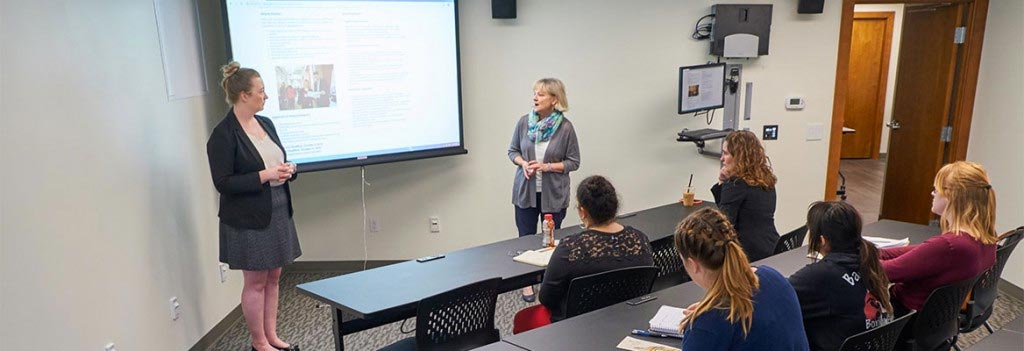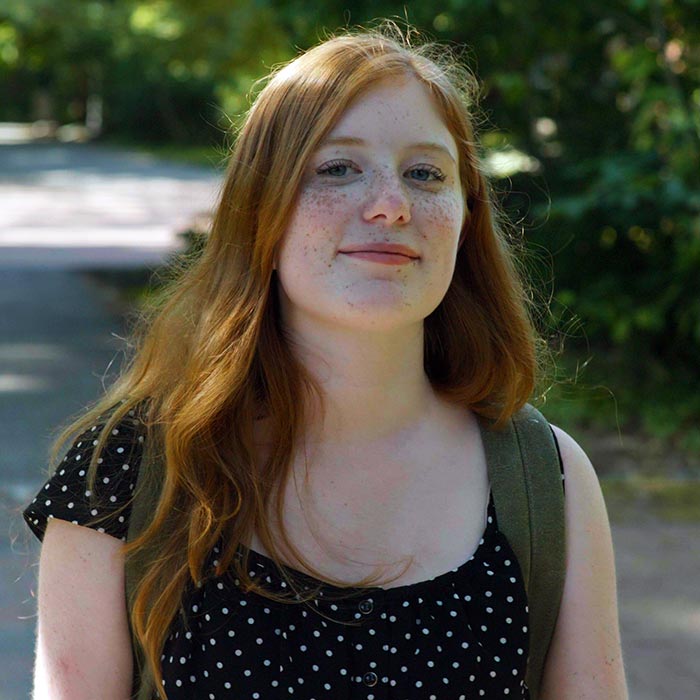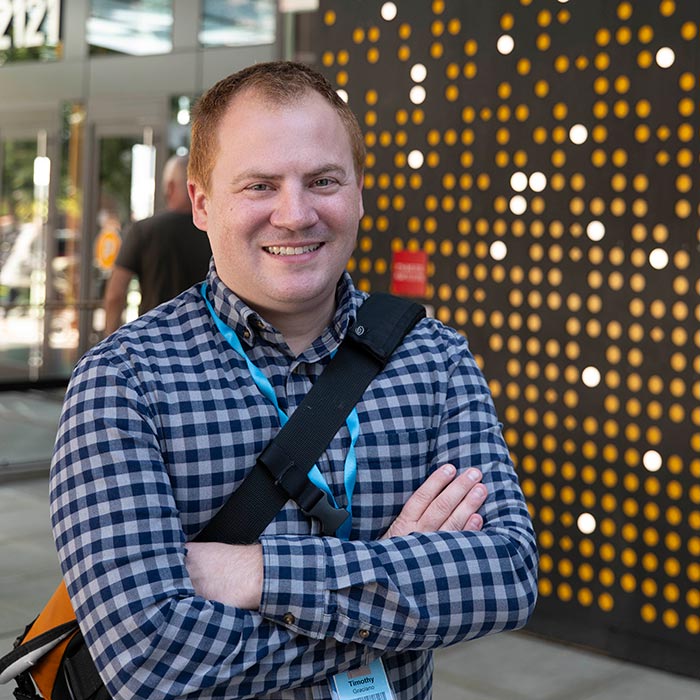The Department of Economics, with support from PLU Alumni & Student Connections, is helping students consider how their studies can be applied to real-life career paths with a program launched about two years ago. It matches economics students with mentors who are PLU economics alumni.
“We have mentors that are CEOs, senior VPs of major companies,” said Professor and Chair of Economics Karen Travis. “Students would rarely have the opportunity to find such accomplished people through their typical networking. The quality of these alumni is phenomenal.”
Chloe Wilhelm ’20, a double major in economics and political science, was matched with Tim Graciano ’05, a senior manager at Amazon.
“I was a little intimidated at first,” said Wilhelm. “I was a little shocked that I was able to get paired up with someone like that, but as soon as we started talking, he was just so easy to talk to and I was really able to connect with him.”
They talked. And talked some more about economics, PLU, and what comes next.
“Some of the things I challenged Chloe with were to think really critically about the different paths she wanted to pursue,” Graciano said. “The great thing about economics is that it opened up a lot of doors. I challenged her to think about the right balance between her interests and passions and what meaningful work for her would look like.”
Madison Salisbury ’21 is entering her fourth year at PLU and is double majoring in economics and business. She heard about the mentorship program through Travis and the Economics Club. She was paired with Molly (Banks) Kennedy ’03, marketing manager at Zillow Group.
She shadowed Kennedy for a day at Zillow headquarters in Seattle.
“The thing that was most beneficial throughout this mentorship process is the ability to have Molly as a resource,” Salisbury said. “Before Molly was my mentor, I had no idea what a career in marketing could look like. Molly helped me understand the different jobs I could have within marketing. She also gave me a better understanding on how the marketing industry works.”
Graciano challenged Wilhelm to “dig deep” and find a career path to complement her skills and fire her up. He helped her apply for an internship at the Washington, D.C., bureau of The New York Times, and she nailed it.
“There is kind of a gap, I think, between what people are doing in school and how they want to apply their degree once they get out into the workforce,” Wilhelm said. “And for me, this program completely closed that gap.”
The pair even did a mock interview before Wilhelm’s real phone interview. “I felt way more prepared going into that interview,” Wilhelm said.
So far, about 20 Economics students have been matched with mentors, according to Travis.
“The students answer a short survey about interests and then I do the matching with staff from Office of Alumni & Student Connections,” she said. “We sent a survey out to alumni to gather names of those interested.”
Last year, the program attracted more mentor volunteers than students. But that could change as students begin to hear about the value of mentorships from students who have benefitted from the career relationships.
“This mentorship has helped me improve my networking skills and has helped me get out of my comfort zone,” Salisbury said. “I have a better understanding of what I want to do after I graduate. Being able to connect with Molly has been a real value and I am very thankful she took time out of her busy schedule to meet with me.”




